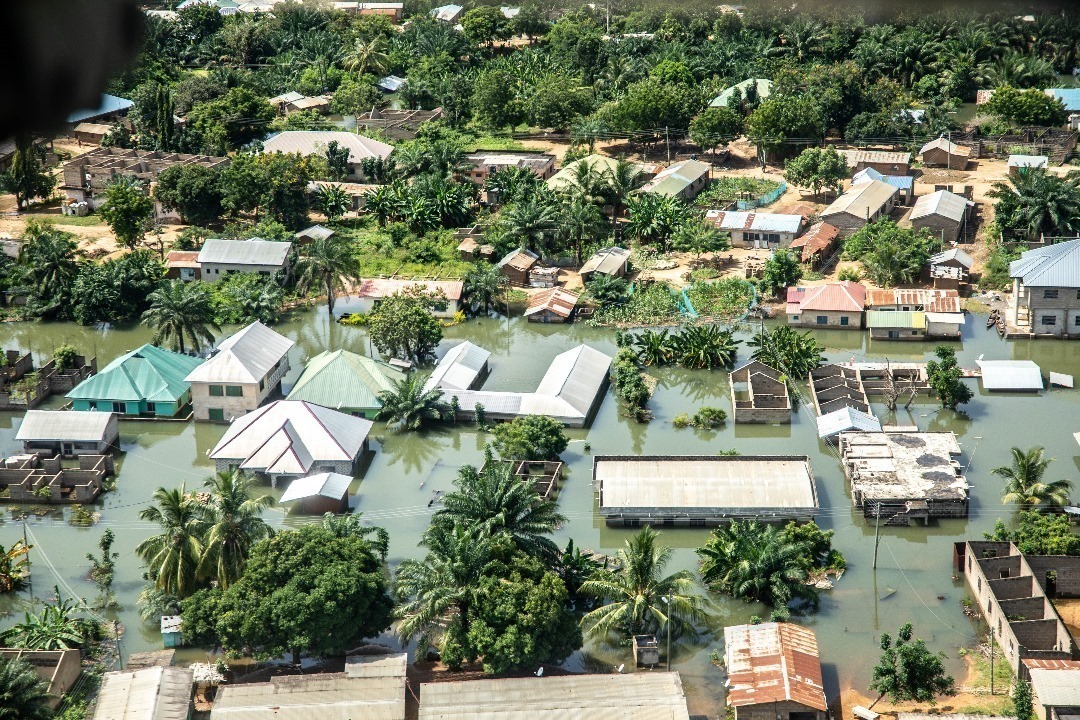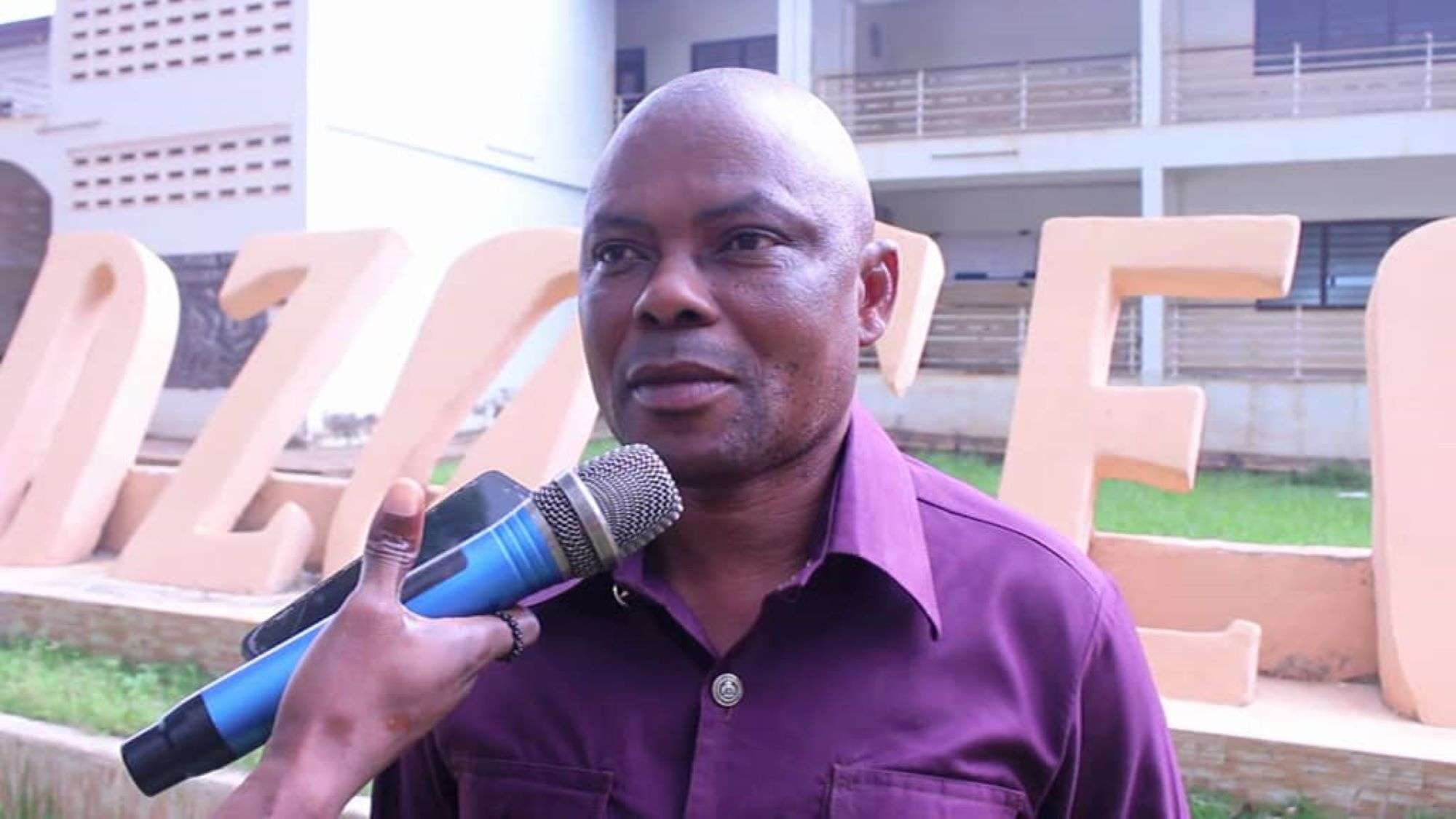In the face of adversity brought about by the controlled spillage of the Akosombo and Kpong Dams, on 15th September 2023, government’s response has remained unwavering. Government’s comprehensive rescue and restoration strategy continues to unfold, with a resolute focus on delivering relief items and implementing targeted measures to rejuvenate economic, social, and environmental services in the affected regions. This spillage, by the Volta River Authority, marks the first occurrence since 2010 and is a direct result of the surplus water in both reservoirs, attributed to the unusually high volumes of rainfall recorded this year.
Mr. Eric Nana Agyemang Prempeh, the Director General of the National Disaster Management Organisation (NADMO), has elucidated the three-phase approach that underpins this vital endeavor.
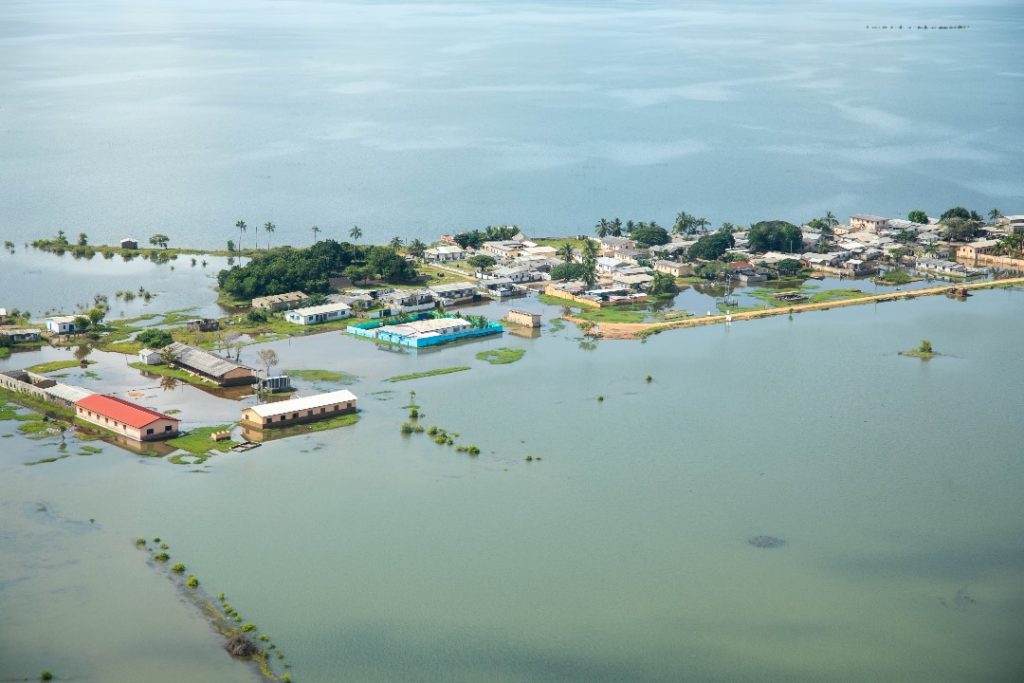
Significantly, a concerted effort to rescue affected individuals and ensure their safety; secondly, the provision of relief items to ease their transition; and lastly, the initiation of measures aimed at restoring these communities to operational capacity.
The tireless efforts, marked by the arrival of affected persons, notably from Tongu Districts and Anlo Districts via canoes and boats, bolstered by dedicated support teams offering mattresses, blankets, food items, clothing, and toiletries, are emblematic of government’s commitment to safeguarding lives and property.
In a marked display of governmental resolve, Mr. Prempeh, led a high-level delegation during a tour of communities significantly affected by the Volta Dam Spillage. Accompanying him were Mr. Seji Saji, the Deputy Director-General of NADMO, and a delegation from the Ghana Armed Forces, under the leadership of Chief of Naval Staff, Rear Admiral Issah Yakubu.
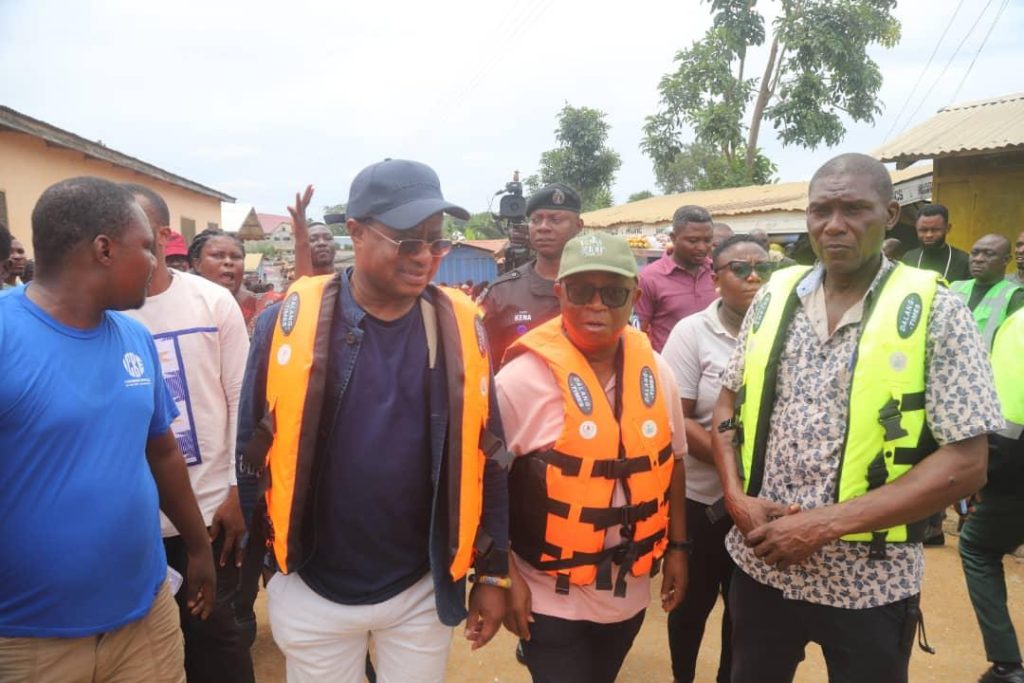
The visit, marked by the presence of eminent dignitaries, included Mr. Emmanuel Antwi-Darkwa, the CEO of the Volta River Authority (VRA), and his deputies. Also in attendance were the District Chief Executives (DCEs) representing the areas directly impacted by the spillage.
The entourage visited rescue centers strategically set up at Mepa in the North Tongu District and Akpa in the Central Tongu District, where approximately 6,000 affected victims are currently hosted under the combined auspices of NADMO and VRA.
The affected persons have received relief items and medical care where necessary.
This on-site assessment served to underscore government’s unwavering commitment to providing the requisite support and assistance to those affected by the crisis.
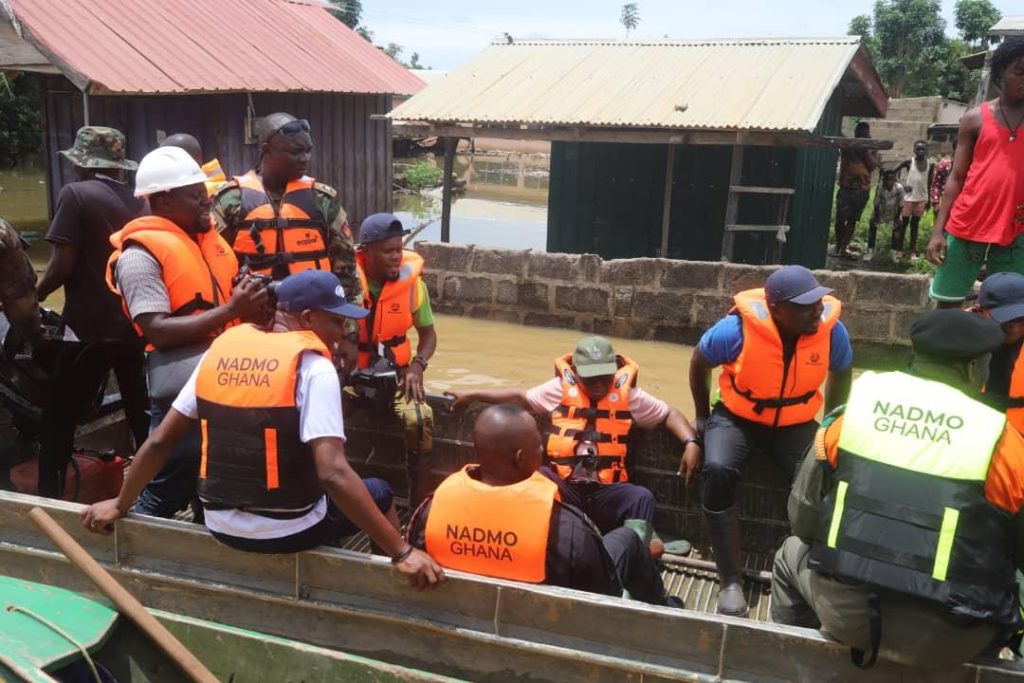
Crucially, President Nana Addo Dankwa Akufo-Addo has taken decisive steps by establishing an inter-ministerial committee, spearheaded by the Chief of Staff, Akosua Frema Osei-Opare, to oversee government’s response to assist the victims.
The committee’s actions have brought palpable relief to many, and they persist in their assiduous endeavors to restore lives and recalibrate affected communities to a state of normalcy.
These resolute actions underscore government’s dedication to addressing the multifaceted challenges posed by the spillage, encompassing submerged communities. Beyond rescue operations, significant strides have been made, such as the restoration of electricity to certain regions, alongside the reinstatement of access to vital healthcare services.
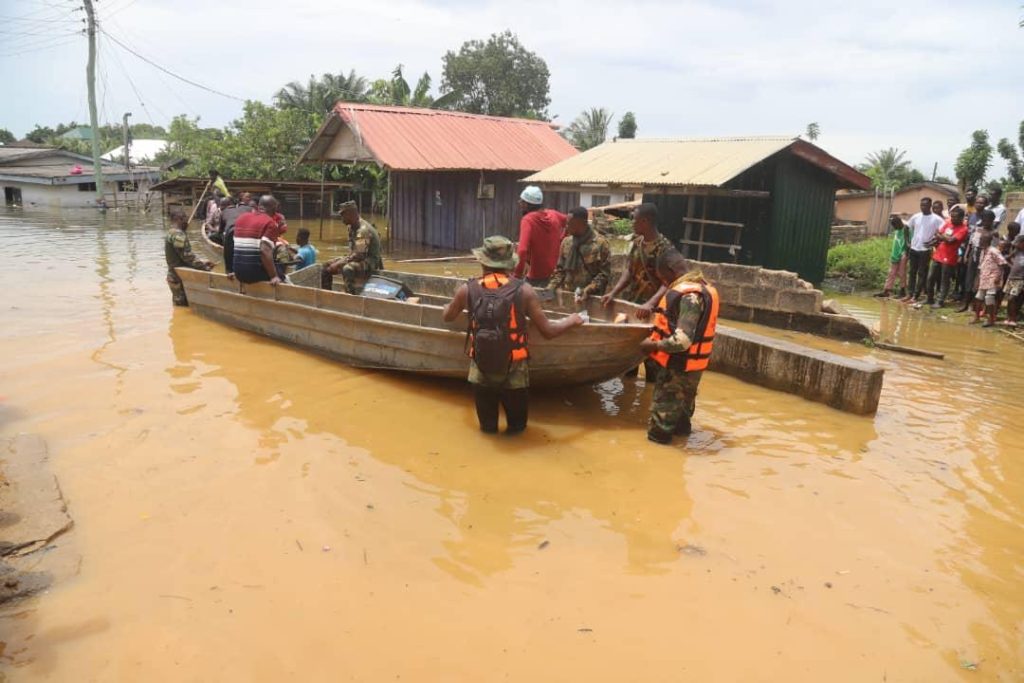
This resonates with government’s overarching approach to disaster mitigation – one that unequivocally prioritises lives and livelihoods, transcending geographic borders and emphasising that every individual within the nation’s boundaries is recognised as a Ghanaian.
The veritable challenge lies not in the absence of political will, but rather in overcoming general challenges with emergency interventions. Within this context, it is imperative to eschew the politicisation of such challenges and, instead, forge collaborative approaches that strengthen community resilience against an array of disasters, from flooding to terrorism.
This is the path to building cohesive societies, forsaking the allure of divisive narratives.
Moreover, in an emphatic demonstration of their commitment to the affected communities, the President and the Committee have announced their forthcoming personal visits to the impacted areas.
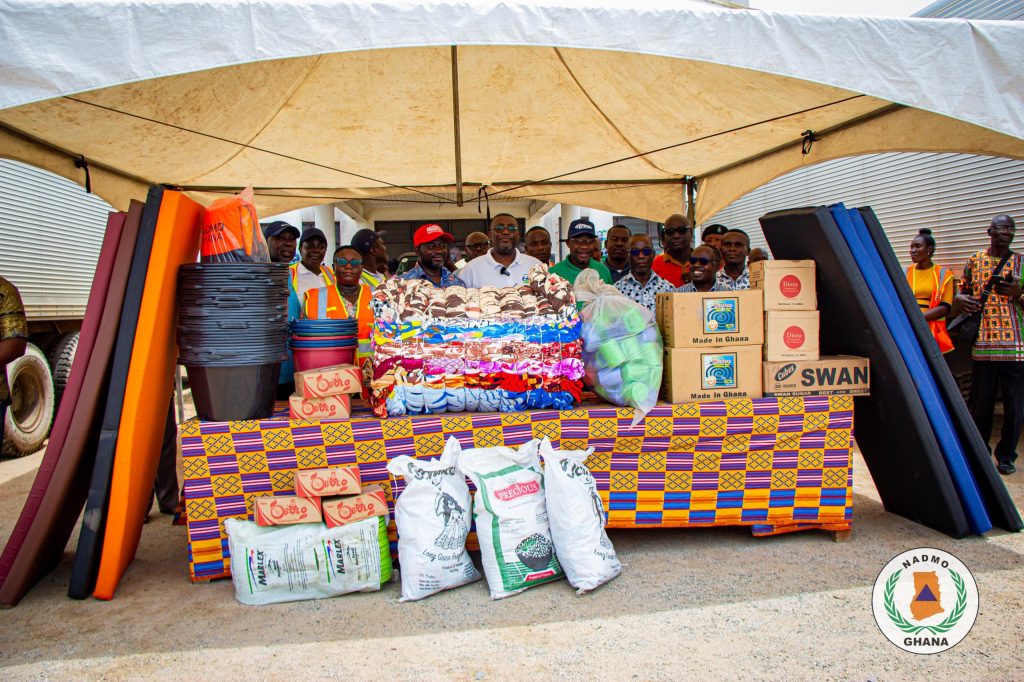
This hands-on approach not only promises practical assistance but also aims to infuse a sense of hope and comfort within the impacted communities, restoring smiles to the faces of those who have endured these trying times.
Indeed, the tangible impact of government’s swift and empathetic response is already beginning to manifest itself, as smiles reemerge on the faces of many affected individuals.
This is a testament to a resilient nation’s enduring spirit and the embodiment of the unity that underpins its response to adversity.



